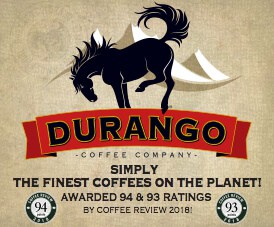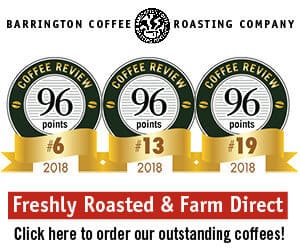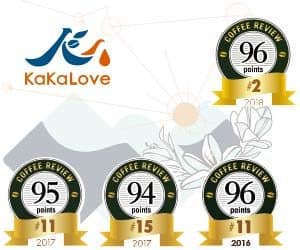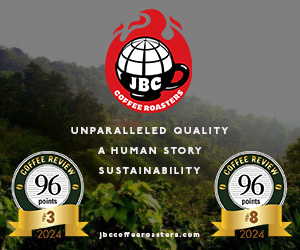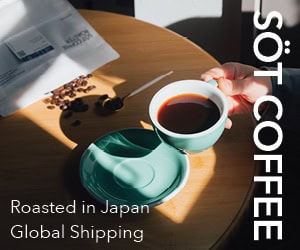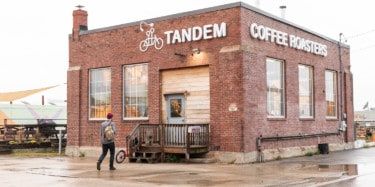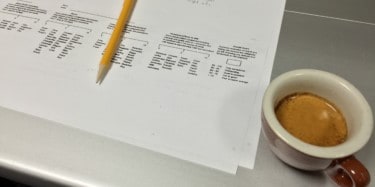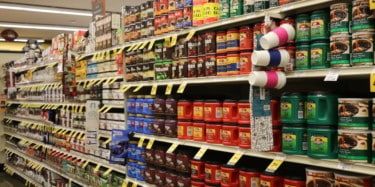If you’re a coffee drinker, you’re familiar with the coffees on every supermarket shelf, the ubiquitous bags you either look for or avoid, depending on your relationship to the many corporate brands available. A growing number of nationally available specialty coffee brands in the U.S. are on store shelves from Boston to Baton Rouge and Boise to Berkeley. And if you live in a small, rural town
SEARCH RESULTS
Rwanda Murundo People’s Farm
Produced by smallholding farmers around the Murundo Washing Station, entirely of the Bourbon variety of Arabica, and processed by the traditional washed method (fruit skin and pulp removed before drying). Intelligentsia Coffee, founded in Chicago 1995 by Doug Zell and Emily Mange, is now owned by Peet’s/JAB Holding Company. Intelligentsia has training centers in Austin, Boston, Chicago, Los
Ethiopia Kirite
Produced by smallholding farmers, from trees of local landrace varieties of Arabica long grown in the region, and processed by the washed method (fruit skin and pulp removed before drying). Intelligentsia Coffee, founded in Chicago 1995 by Doug Zell and Emily Mange, is now owned by Peet’s/JAB Holding Company. Intelligentsia has training centers in Austin, Boston, Chicago, Los Angeles and New
Intelligentsia Coffee
New England Coffee Roasters: Embracing (and Reinventing) Tradition
The very day we spoke with several roasters in New England whose coffees are featured in this month's tasting report, Dunkin' Brands, parent company of Dunkin' Donuts (now rebranding simply as Dunkin’) and headquartered in Massachusetts, announced plans for expansion. And the company's "Blueprint for Growth" centers not on doughnuts, but coffee, including the relaunch of the Dunkin’ espresso
The New (and Old) Instant Coffees: Convenience Aspires to Quality
It sounds easy enough. Brew the coffee, take out the water, keep the stuff that’s left, package it, and let the consumer put the water back in later. Coffee … instantly. But judging from the 24 soluble coffees we tested for our September tasting report, it isn’t quite as easy as it sounds. It has always been difficult to judge whether the generally dreadful quality of instant coffee sold in
Rayos del Sol Peru Light Roast (Instant Coffee)
This coffee earned the fourth-highest rating in a tasting of “instant” or soluble coffees for Coffee Review’s September 2018 tasting report. The green coffee was produced by farmer Percy Pintado from trees of the Red Caturra, Yellow Caturra and Bourbon varieties of Arabica. This is a wet-processed or “washed” coffee, meaning the fruit skin and pulp were removed from the beans immediately after
New-World Espressos: Single-Origin Espressos from the Americas
We were not sure what to expect when we scheduled this month’s tasting of single-origin espressos from coffees grown in the New World (meaning coffees from the Americas rather than from Africa or the Pacific). Would we receive a run of light-roasted, brightly acidy, perhaps sharp espressos of the style that seems to have become fashionable over the past few years among some smaller, leading-edge
When the Small Get Big (and the Big Try for Small)
We know them. These are the coffee roasting companies that made their reputations as innovative locally based roasters, and eventually came to model a new kind of coffee institution, one built around a revived intimacy between coffee and customer, precisely described high-end microlot coffees brought to dramatically light roasts, minimalist café interiors, free public cuppings, and pedagogical
Bolivia Finca La Linda Honey Java
Finca La Linda is a farm operated by the innovative Bolivia specialty coffee producer Agricafe. This is a honey-processed coffee, which means that the outer skin is removed as it is in the wet or “washed” process, but at least some of the sticky fruit residue is allowed to dry on the bean and is later removed by machine along with the parchment skin. Java refers, not to the Indonesian island, but
Benti Nenqa Ethiopia
Produced by the METAD farm and mill in southern Ethiopia. Southern Ethiopia produces distinctive coffees from traditional varieties of Arabica long grown in the region. Coffees like this one processed by the wet or washed method (fruit skin and pulp is removed before drying) typically express great aromatic complexity and intensity with a particular emphasis on citrus and floral notes.
Trolling the Supermarkets for Single-Origin Coffees
Every month Coffee Review publishes reviews of exceptional, often extraordinary single-origin coffees: green coffees produced in a single country, from a single crop, from a single farm or cooperative and, often, from a single variety of tree. These coffees are usually roasted and packaged by smaller roasting companies, however, so unless you happen to live in the immediate neighborhood of one of
Peet’s Buys Stake in Intelligentsia
On the heels of its acquisition of Portland's Stumptown Coffee Roasters, California-based Peet's Coffee & Tea has bought a majority stake in Intelligentsia Coffee. Read more coverage at Fortune.com. Coffee Review has rated 40 Intelligentsia coffees over the years, starting with their famous Black Cat Blend in way back in 1998. The average rating for Intelligentsia's coffees is an excellent
Direct Trade La Tortuga Honduras
Produced at an elevation of around 5,000 feet from trees of the Bourbon, Caturra, Catuai and Typica varieties of Arabica. This coffee continues a nine-year relationship between Intelligentsia Coffee and Honduras farmer Don Fabio Caballero. This sample was roasted at Intelligentsia’s Los Angeles facility. With operations in the Chicago and Los Angeles areas, Intelligentsia is a distinguished
Single-Origin Espressos
The practice of roasting a coffee from a single farm or cooperative for espresso brewing is a tactic that appears to be carrying the day at the higher end of the North American specialty coffee world. The old argument against single-origin espressos and in favor of blends ran: Put a single, unblended coffee under the magnifying intensity of espresso brewing and the coffee is liable to come out
Peru Cruz Del Sur
Certified organically grown by the Producer Association of La Palma. Part of its Black Cat Espresso program, this sample was roasted at Intelligentsia’s Los Angeles facility. With operations in the Chicago and Los Angeles areas, Intelligentsia is a distinguished specialty roaster and a leader in sourcing and roasting small, exceptional lots of coffee like this one. Visit
What’s a Cortado?
Recently a Coffee Review reader sent in a request that we post information on our website about cortado, a relatively obscure coffee beverage in North American cafés. I searched the reference pages, thinking some mention of it had to be buried in the “espresso cuisine” section. But no, no cortado was to be found. Most serious coffee drinking café denizens are able to precisely define the
Kenya Gichathaini
Gichathaini is one of three cooperative green-coffee processing centers run by the Gikanda Cooperative Society. With operations in the Chicago and Los Angeles areas, Intelligentsia is a distinguished specialty roaster and a leader in sourcing and roasting small, exceptional lots of coffee like this one. Visit www.intelligentsiacoffee.com or call 888-945-9786 for more information.
American Espresso Blends: Boutique and Bigger
Specialty espresso is currently in the throes of a creative explosion. I think of it as "post-Italian" espresso, a dynamic community of baristas, blender/roasters and motivated aficionados remaking espresso as a global connoisseur's beverage with passionately contested barista competitions, non-traditional brewing innovations, and freshly conceived blend designs. The goal of this month's
Tres Santos Micro-Lot La Dorada Cauca
Tres Santos is a coffee competition in Colombia organized by Intelligentsia green coffee buyer Geoff Watts designed to uncover the finest lots of coffee from participating small-holding farmers from the harvests of the Huila (and in the case of this coffee) Cauca growing regions, rewarding them with recognition and high purchase prices. This prize-winner is from the farm of Alvaro Quintero.


